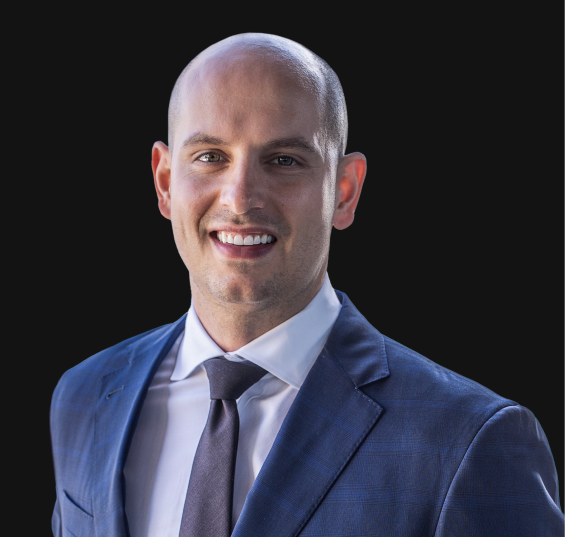Try as we might, it’s impossible to live a life without mistakes. If you’re lucky, the mistake is minor and provides an opportunity to grow. Financial mistakes, on the other hand, almost always cause some pain, and they can have potentially devastating effects down the line.
As a CERTIFIED FINANCIAL PLANNER™ professional, I have worked with many clients over the years. Even though each client is different and their situations are unique, I’ve found that everyone has made financial mistakes at one point or another, often without even realizing it. I strive to provide my clients with the tools and resources to be better prepared for the future by avoiding financial pitfalls. Here are 5 common financial mistakes I’ve seen over the years and how you can prevent them from wreaking havoc on your financial future.
1. Not Giving Diversification the Attention it Deserves
One of the biggest financial mistakes I see is not understanding diversification and the role it plays in your overall wealth management plan. It’s one thing to know, in theory, that investment diversification is a key strategy, but it’s another thing to follow through by staying on top of your portfolio and periodically rebalancing as needed. Without vigilance, you may easily find yourself invested too heavily in one industry or one type of investment.
True diversification is a risk management strategy. When properly implemented, it can reduce risk and taxation while maximizing long-term profits. It can’t guarantee a minimum level of return, but it will at least act as a buffer against the inherent volatility of the market by mixing a wide variety of investments and asset types into a comprehensive portfolio.
2. Not Developing an Income Plan in Retirement
Another common mistake I see is forgetting to develop an income plan in retirement. Most people focus on what they need to do to make it to a comfortable retirement and often forget that is only one half of the equation. Your income plan during retirement will also play a major role in how long your money will last.
A well-developed retirement plan should include both guaranteed income, such as a pension or Social Security, and investment income, such as real estate or income from your retirement account.
Once you know where your money is coming from, you will need to think about the timing of retirement withdrawals. For instance, you can start withdrawing Social Security at age 62; however, if you delay taking benefits until you are 70, your benefit amount will increase. Assets like 401(k) plans, Roth IRAs, and annuities are each taxed differently, and your overall tax bill can be reduced by timing withdrawals from each income source in a tax-efficient way.
3. Trying to “Beat” the Market
When investing, the long term is what matters. While a select few mutual funds might outperform their benchmarks in any given year, over time we see that this usually doesn’t last. Quite often, attempting to beat the market and chase the latest new stock results in taking greater risk, greater trading costs, and sub-par results.
If you want to see growth in your portfolio through the stock market, it’s important to stick to your investment strategy and ignore the short-term noise. In my experience, clients have historically been much better served by focusing attention, time, and energy on things they can manage, such as how much risk to take in the first place, rebalancing periodically, having realistic growth rate assumptions, and developing their investment strategy as part of their financial planning process.
4. Not Planning for Unexpected Risks
Very few people, if any, predicted COVID-19 or the Great Recession. But these two events have made it abundantly clear that unexpected economic downturns must be considered when building a comprehensive wealth management strategy. People often think that an emergency fund is enough to ride out unforeseen major life events, but it usually takes more than that. Proper risk management is key to staying afloat during uncertain times. This can be accomplished by considering unexpected risks that are personal in nature, such as divorce, disability, accidents, and illness, and by making sure you are properly covered.
5. Underestimating the Cost of Owning Real Estate
Finally, I often see people purchase real estate without understanding the true costs involved. Real estate owners should be prepared to pay for more than the home or property itself. Additional costs such as property taxes and insurance premiums should also be factored in. Not to mention the cost of replacing worn-out appliances or roofing and, in the case of rental properties, dealing with renter destruction or vacancy periods. Depending on the locations of the property, these costs can be quite high and can easily overstretch an eager real estate owner’s initial budget.
Be sure to thoroughly research and inspect any prospective property before jumping into ownership, especially if you plan to use it as a rental. Best-case scenario, it can create a steady stream of income, but worst-case scenario, it may end up as a money-suck that creates more trouble than it’s worth. Involving your financial advisor in the feasibility of purchasing real estate is always a good idea.
Are You Making Some of These Financial Mistakes?
Don’t let these common financial mistakes derail your wealth management plan. JGP Wealth Management is here to help. If you have questions about how to plan for common mistakes such as these contact us here.





